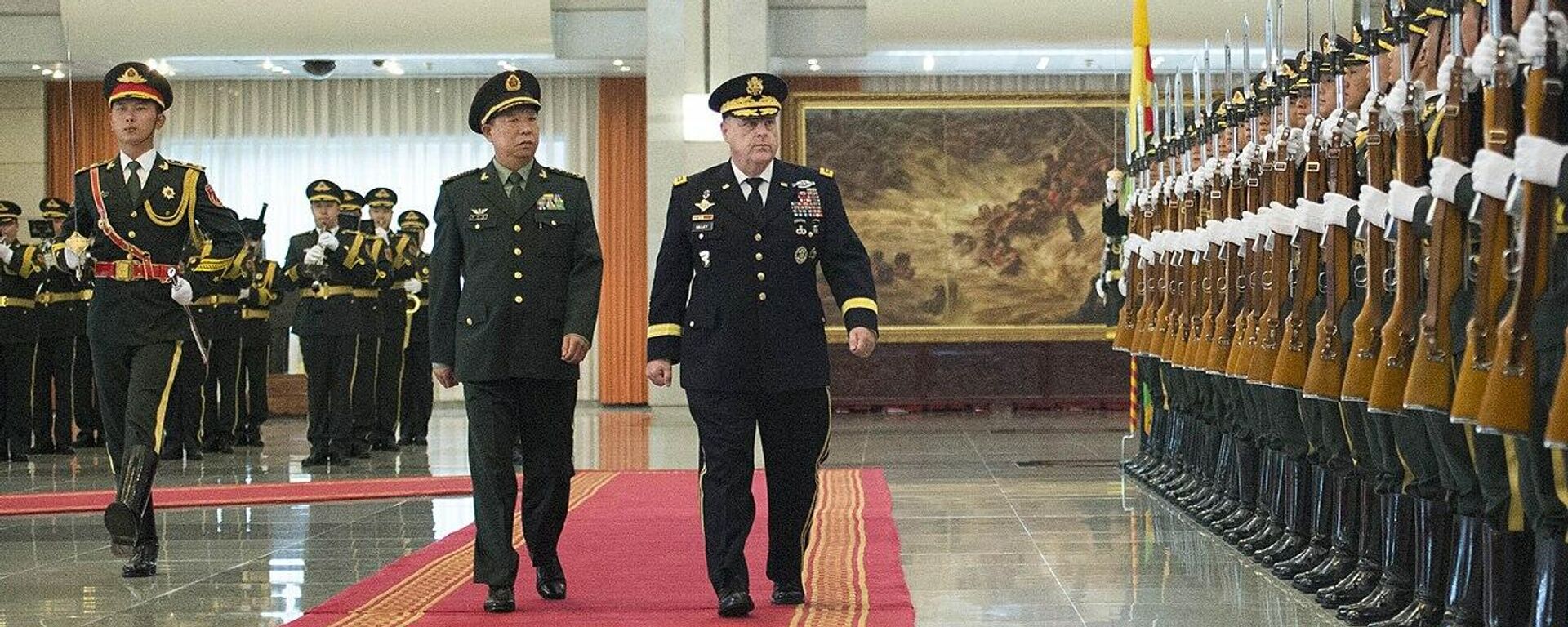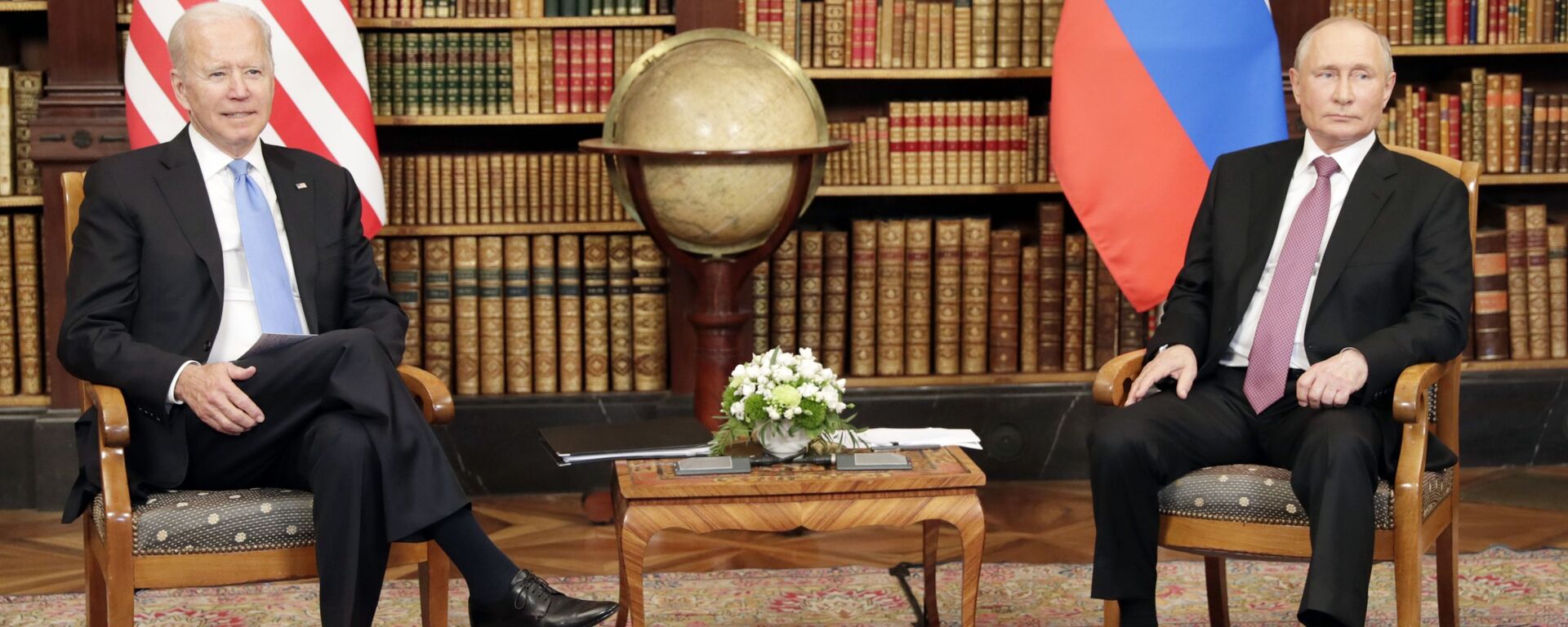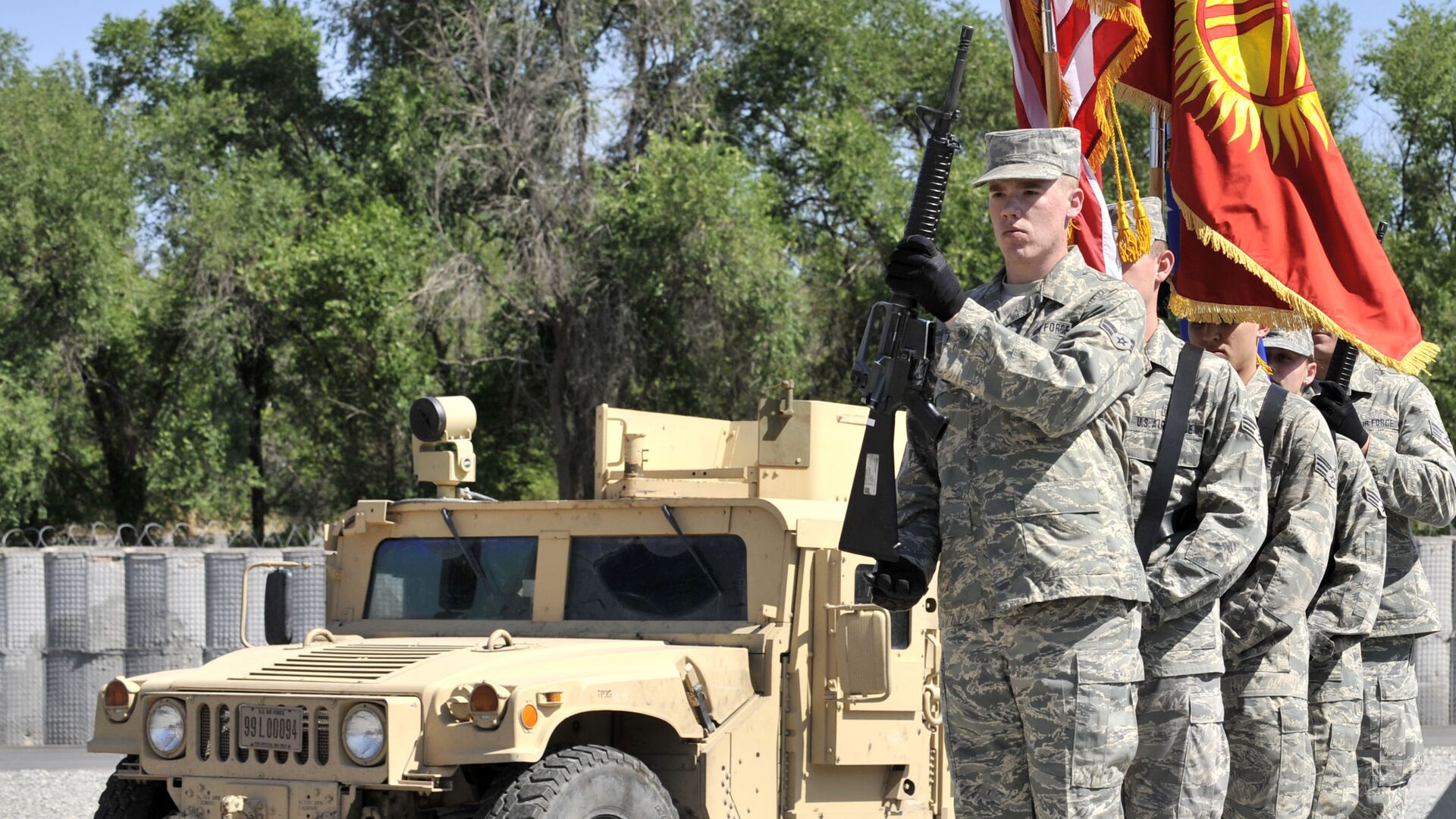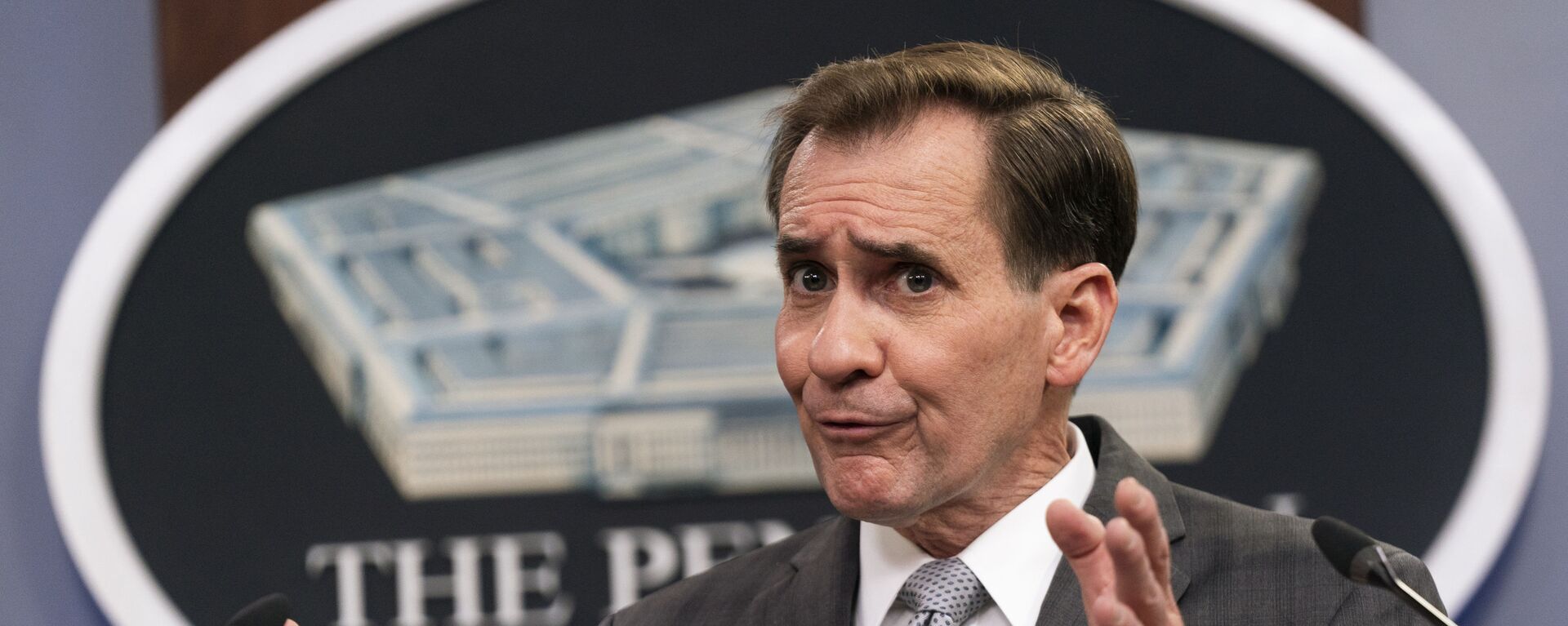https://sputnikglobe.com/20210928/gop-furious-over-report-pentagon-asked-to-access-russian-central-asian-bases-to-monitor-afghanistan-1089483675.html
GOP Furious Over Report Pentagon Asked to Access Russian Central Asian Bases to Monitor Afghanistan
GOP Furious Over Report Pentagon Asked to Access Russian Central Asian Bases to Monitor Afghanistan
Sputnik International
The rapid collapse of the Afghan government in mid-August left the US scrambling to find military facilities nearby from which to carry out reconnaissance or... 28.09.2021, Sputnik International
2021-09-28T12:47+0000
2021-09-28T12:47+0000
2021-09-28T13:10+0000
central asia
afghanistan
senate armed services committee
us house armed services committee
mark milley
https://cdn1.img.sputnikglobe.com/img/15535/21/155352105_0:631:2791:2201_1920x0_80_0_0_de273717636b68c0f368cb57ce170d57.jpg
Republicans from the House and Senate armed services and foreign affairs committees are demanding answers from Secretary of Defence Lloyd Austin and Secretary of State Antony Blinken over a report that the Biden administration is negotiating with Moscow on anti-terrorism cooperation and looking to access Russian military installations in Central Asia to keep an eye on the situation in Afghanistan.In a letter published on his website Monday, ranking Republican Senate Armed Services Committee Senator James Inhofe and his colleagues, Senator Jim Risch and Representatives Michael McCaul and Mike Rogers, said they were “deeply troubled” by the reports of Russia-US talks on counterterrorism cooperation and basing rights.“Russia,” Inhofe and his colleagues suggested, “is more concerned with collecting intelligence on the US and our allies than it is sharing information on terrorist threats.” The lawmakers went on to claim that Russia is not really fighting terrorism in Syria, and to repeat the (debunked) allegations that Moscow provided weapons and other support to the Taliban against the United States and NATO.The lawmakers asked the White House to provide them with an “immediate briefing” on “any negotiations, agreements, arrangements, proposals or other coordination on counterterrorism in South and Central Asia involving the Biden administration as well as [the] Russian government and military,” and its broader “diplomatic and military engagement with Afghanistan’s neighbours regarding US counterterrorism goals.”Officials speaking to the newspaper described Gerasimov’s reaction to Milley’s proposal as “noncommittal,” with Kremlin spokesman Dmitry Peskov declining to comment. A spokesperson for Gen. Milley also declined to comment.After his meeting with Gerasimov last week, Milley offered a series of conciliatory remarks related to Russia, suggesting that Washington should explore the possibility of expanding military-to-military contacts with Moscow, including the invitation of observers to one another’s drills. Milley also emphasized the need “to put in place policies and procedures to make sure that we increase certainty,” trust and stability “in order to avoid miscalculation and reduce the possibility of great power war.”Pentagon spokesman John Kirby poured cold water on Milley’s comments on Friday, saying coordination between the US and Russian militaries was restricted as “a matter of policy and law” due to tensions over Ukraine.Milley is expected to face a grilling from lawmakers Tuesday and Wednesday over telephone calls he made to his Chinese counterpart, General Li Zuocheng, in the final months and weeks of the Trump presidency. In one of the calls, Milley assured Li that he would personally phone and warn him if Donald Trump ordered an attack against China. Trump and his fellow Republicans have accused Milley of “treasonous” behaviour for going behind the president’s back to make the calls. The general insists he’s done nothing wrong, and President Joe Biden has defended him.US Bases in Central AsiaThe Biden administration began approaching officials in Uzbekistan and Tajikistan in May to discuss the possibility of deploying US forces in the country after their planned withdrawal from Afghanistan. In July, US Homeland Security officials traveled to Tashkent, Uzbekistan to discuss counterterrorism cooperation, while State and Pentagon officials met with the Uzbek and Tajik foreign ministers in Washington.Last month, US media reported that Russian President Vladimir Putin had told his US counterpart Joe Biden at their Geneva summit in June that Moscow would oppose the deployment of US forces in Central Asia. Russian Deputy Foreign Minister Sergei Ryabkov confirmed that Moscow does not see “how any form of US military presence in Central Asia might enhance the security of the countries involved and/or of their neighbours,” and stressed that such a deployment “would definitely not be in the interests of Russia.”The Pentagon expressed renewed interest in basing agreements in Central Asia after calculating that sending reconnaissance or strike drones to Afghanistan from US bases in the Persian Gulf would severely restrict their operational capabilities.Central Asian leaders have rejected US overtures for possible basing rights. On Tuesday, outgoing US Ambassador to Kazakhstan William Moser told reporters the US does not have any plans regarding the use of Russian military bases in Central Asia at the moment.US forces were briefly based in Tajikistan in 2001, and in Uzbekistan between 2001-2005. From 2001 and 2014, the US also had a major military facility at the Manas Air Base in Kyrgyzstan. Uzbekistan and Kyrgyzstan forced the US to close the bases after accusing Washington of interference in their domestic affairs.Tajikistan and Kyrgyzstan are allied to Russia through the Collective Security Treaty Organization (CSTO), while Uzbekistan maintains a policy of neutrality – barring any nation from permanently stationing troops on its territory. Russia’s military base in Dushanbe, Tajikistan is the largest Russian military facility abroad, hosting 7,000+ troops, hundreds of tanks, armoured personnel carriers, artillery, drones, S-300s and over a dozen aircraft. In July, Russian troops took part in joint drills with Tajik and Uzbek forces at training grounds near the countries’ borders with Afghanistan.
https://sputnikglobe.com/20210416/pentagon-spokesman-refuses-to-apologize-for-afghan-bounties-allegations-against-russia-1082650733.html
https://sputnikglobe.com/20210928/milley-preps-for-congressional-grilling-over-treasonous-phone-call-to-pla-head-behind-trumps-back-1089478308.html
https://sputnikglobe.com/20210820/putin-reportedly-rebuffed-bidens-push-to-put-us-troops-in-central-asia-amid-afghan-withdrawal-1083672370.html
central asia
afghanistan
Sputnik International
feedback@sputniknews.com
+74956456601
MIA „Rossiya Segodnya“
2021
News
en_EN
Sputnik International
feedback@sputniknews.com
+74956456601
MIA „Rossiya Segodnya“
Sputnik International
feedback@sputniknews.com
+74956456601
MIA „Rossiya Segodnya“
central asia, afghanistan, senate armed services committee, us house armed services committee, mark milley
central asia, afghanistan, senate armed services committee, us house armed services committee, mark milley
GOP Furious Over Report Pentagon Asked to Access Russian Central Asian Bases to Monitor Afghanistan
12:47 GMT 28.09.2021 (Updated: 13:10 GMT 28.09.2021) The rapid collapse of the Afghan government in mid-August left the US scrambling to find military facilities nearby from which to carry out reconnaissance or strike missions against terrorists in Afghanistan. Washington has approached several Central Asian nations with the hopes of reaching a basing agreement, but has yet to meet with any luck.
Republicans from the House and Senate armed services and foreign affairs committees are demanding answers from Secretary of Defence Lloyd Austin and Secretary of State Antony Blinken over a report that the Biden administration is negotiating with Moscow on anti-terrorism cooperation and looking to access Russian military installations in Central Asia to keep an eye on the situation in Afghanistan.
In a
letter published on his website Monday, ranking Republican Senate Armed Services Committee Senator James Inhofe and his colleagues, Senator Jim Risch and Representatives Michael McCaul and Mike Rogers, said they were “deeply troubled” by the reports of Russia-US talks on counterterrorism cooperation and basing rights.
“Inviting Russia into discussions will not further vital US counterterrorism goals, nor is it the path to the ‘stable and predictable’ relationship with Russia the Biden administration claims it wants,” the lawmakers said, adding that cooperation with Moscow “risks violating the legal prohibition on US-Russian military cooperation” currently in place thanks to the crisis in Ukraine.
“Russia,” Inhofe and his colleagues suggested, “is more concerned with collecting intelligence on the US and our allies than it is sharing information on terrorist threats.” The lawmakers went on to claim that Russia is not really fighting terrorism in Syria, and to repeat the (
debunked) allegations that Moscow provided weapons and other support to the Taliban against the United States and NATO.
The lawmakers asked the White House to provide them with an “immediate briefing” on “any negotiations, agreements, arrangements, proposals or other coordination on counterterrorism in South and Central Asia involving the Biden administration as well as [the] Russian government and military,” and its broader “diplomatic and military engagement with Afghanistan’s neighbours regarding US counterterrorism goals.”
The lawmakers’ letter comes in the wake of a
report in the Wall Street Journal earlier Monday suggesting that Joint Chiefs Chairman Gen. Mark Milley raised the subject of the possible use of Russian military bases in Central Asia by the US to respond to terror threats in Afghanistan in his negotiations with Russian Chief of General Staff Valery Gerasimov in Helsinki last Wednesday.
Officials speaking to the newspaper described Gerasimov’s reaction to Milley’s proposal as “noncommittal,” with Kremlin spokesman Dmitry Peskov declining to comment. A spokesperson for Gen. Milley also declined to comment.
After his meeting with Gerasimov last week, Milley offered a series of
conciliatory remarks related to Russia, suggesting that Washington should explore the possibility of expanding military-to-military contacts with Moscow, including the invitation of observers to one another’s drills. Milley also emphasized the need “to put in place policies and procedures to make sure that we increase certainty,” trust and stability “in order to avoid miscalculation and reduce the possibility of great power war.”
Pentagon spokesman John Kirby poured cold water on Milley’s comments on Friday,
saying coordination between the US and Russian militaries was restricted as “a matter of policy and law” due to tensions over Ukraine.
Milley is
expected to face a grilling from lawmakers Tuesday and Wednesday over telephone calls he made to his Chinese counterpart, General Li Zuocheng, in the final months and weeks of the Trump presidency. In one of the calls, Milley assured Li that he would personally phone and warn him if Donald Trump ordered an attack against China. Trump and his fellow Republicans have accused Milley of “treasonous” behaviour for going behind the president’s back to make the calls. The general insists he’s done nothing wrong, and President Joe Biden has defended him.

28 September 2021, 10:25 GMT
The Biden administration began approaching officials in Uzbekistan and Tajikistan
in May to discuss the possibility of deploying US forces in the country after their planned withdrawal from Afghanistan. In July, US Homeland Security officials traveled to Tashkent, Uzbekistan to discuss counterterrorism cooperation, while State and Pentagon officials met with the Uzbek and Tajik foreign ministers in Washington.
Last month, US media reported that Russian President Vladimir Putin had told his US counterpart Joe Biden at their Geneva summit in June that Moscow would oppose the deployment of US forces in Central Asia. Russian Deputy Foreign Minister Sergei Ryabkov confirmed that Moscow does not see “how any form of US military presence in Central Asia might enhance the security of the countries involved and/or of their neighbours,” and
stressed that such a deployment “would definitely not be in the interests of Russia.”
The Pentagon expressed renewed interest in basing agreements in Central Asia after calculating that sending reconnaissance or strike drones to Afghanistan from US bases in the Persian Gulf would severely restrict their operational capabilities.

20 August 2021, 17:30 GMT
Central Asian leaders have rejected US overtures for possible basing rights. On Tuesday, outgoing US Ambassador to Kazakhstan William Moser told reporters the US does not have any plans regarding the use of Russian military bases in Central Asia at the moment.
US forces were briefly based in Tajikistan in 2001, and in Uzbekistan between 2001-2005. From 2001 and 2014, the US also had a major military facility at the Manas Air Base in Kyrgyzstan. Uzbekistan and Kyrgyzstan forced the US to close the bases after accusing Washington of interference in their domestic affairs.
Tajikistan and Kyrgyzstan are allied to Russia through the Collective Security Treaty Organization (CSTO), while Uzbekistan maintains a policy of neutrality – barring any nation from permanently stationing troops on its territory. Russia’s military base in Dushanbe, Tajikistan is the largest Russian military facility abroad, hosting 7,000+ troops, hundreds of tanks, armoured personnel carriers, artillery, drones, S-300s and over a dozen aircraft. In July, Russian troops took part in joint drills with Tajik and Uzbek forces at training grounds near the countries’ borders with Afghanistan.




